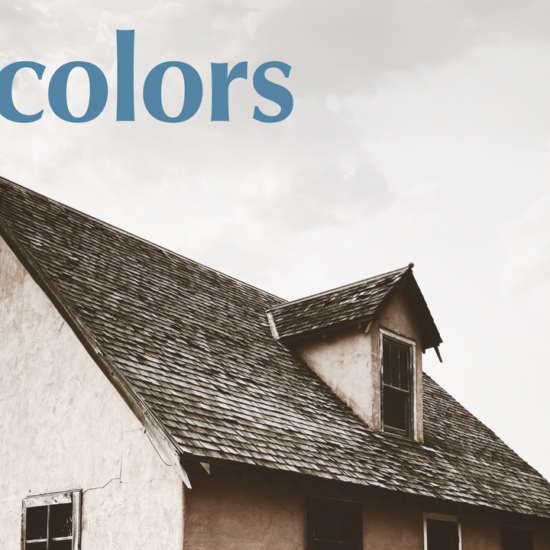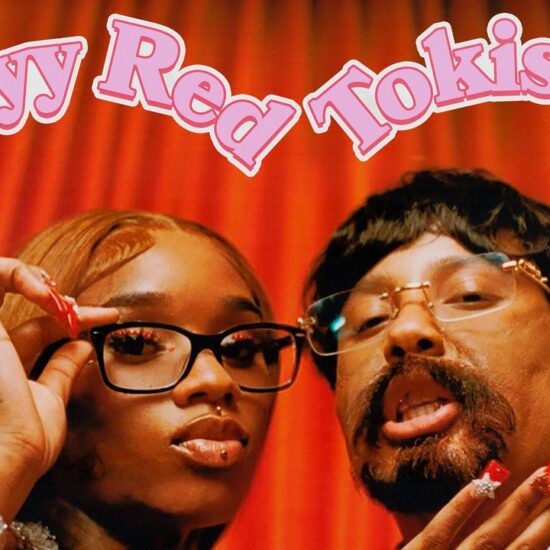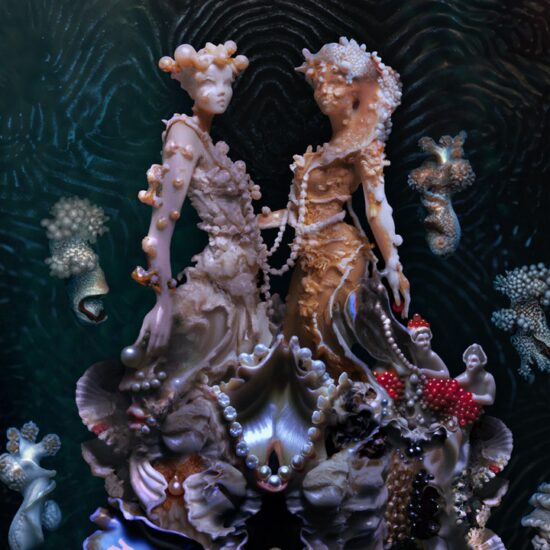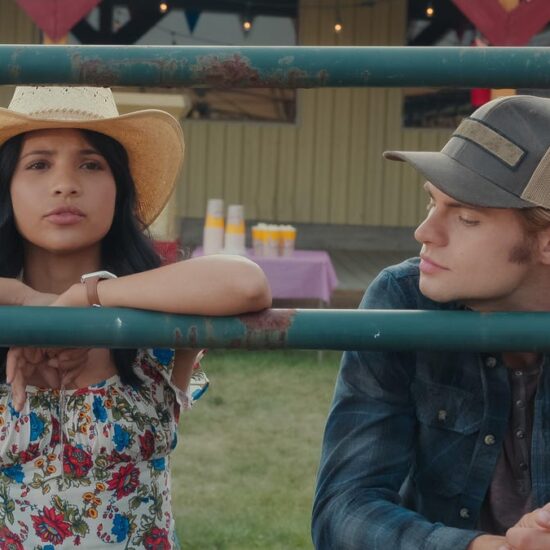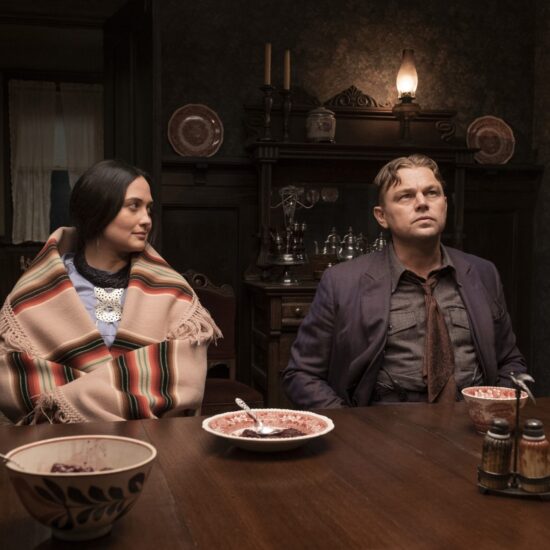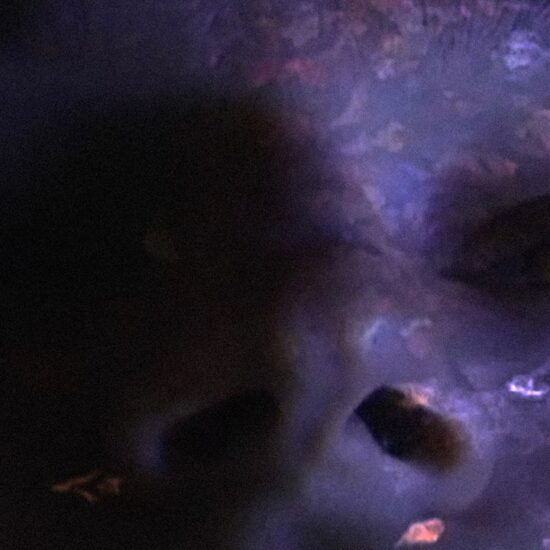
Cannes: Maryam Touzani’s story about a closeted maalem and his handsome apprentice is actually a defense of the institution of marriage.
When an aging couple operating a struggling Moroccan dress shop hire a dashing young apprentice, some of the first words out of his mouth are “I work fast.” That also describes the approach of “The Blue Caftan” director Maryam Touzani, who sets up its straightforward premise so quickly that you’d be forgiven for thinking you had the entire film figured out within five minutes. A closeted gay tailor, who fights with his wife about money, begins mentoring a young man who’s more beautiful than any item in his shop. Gee, what could possibly happen here?
But rather than use that premise to blow up the status quo, Touzani meticulously works backwards, illustrating that there was so much more to these relationships than we could have possibly guessed. Working with an intricacy that rivals that of the craftsman at the center of her film, the auteur crafts a surprisingly warm story that subverts expectations at almost every turn. While “The Blue Caftan” is a film about a gay man exploring his sexuality, the love story at its core is really one between him and his wife. It’s about the friendship and understanding that can form over the course of a lifetime spent together, no matter how unusual the arrangement. As much as anything else, Touzani’s delightful sophomore feature is a defense of the institution of marriage, a reminder that each human soul is worth a lifetime of exploration to someone.
Hilam (Saleh Bakri), is a maalem, a type of Moroccan dressmaker dedicated to sewing beautiful caftans by hand. He’s a master of his art form, but the business he runs with his wife Mina (Lubna Azabal) is struggling. Hilam’s devotion to old world craftsmanship is quite incompatible with contemporary market realities, and he frequently loses business to shops that use sewing machines to deliver products faster. This is a constant source of angst for Mina, who worries about her husband’s inability to meet deadlines. After long days of bickering about money, Hilam frequently “works late” at the shop, stopping at bathhouses on the way home to have sex with men.
Those delays in delivering caftans lead the couple to Youssef (Ayoub Missioui), a young apprentice brought in to expedite things, who shows a serious interest in learning Hilam’s craft. Hilam is thrilled to take the young man on (for reasons that can’t possibly have anything to do with Youssef’s movie star good looks), but Mina is immediately suspicious of him. She refuses to believe that anyone could be truly interested in learning Hilam’s economically inefficient approach to dressmaking, and expects the boy to leave for a higher paying job at the first opportunity.
But he doesn’t leave, and Youssef’s contributions to the shop become increasingly important. Because, as it turns out, Mina has cancer. She’s suffered from breast cancer for years, undergoing countless tests and a mastectomy, and she has all but given up on surviving. But Hilam is unwilling — or unable — to let anything die. Just like he clings to traditional sewing methods, he refuses to give up on his wife, constantly seeking out new doctors despite everyone telling him things are hopeless. Their marriage may be one of necessity and convenience, but Hilam takes his duties as a husband seriously.
In the midst of all of this, Hilam works on a particularly stunning blue caftan for a wealthy client. Even by his high standards, the work is incredible, and Youssef and Mina both look at his craftsmanship with awe. And as his wife’s health absorbs more and more of his attention, she becomes increasingly invested in seeing the dress finished.
It becomes clear just how much respect exists between Hilam and Mina, and those little marital annoyances fade away as she looks at him through the eyes of someone whose days are numbered. She knows that, despite all of his shortcomings, her husband possesses a truly remarkable skill. And as the prospect of losing his wife becomes more of an inevitability, Hilam realizes that he could not have asked for a more understanding partner.
Which leaves Youssef as something of a third wheel. The young man quickly falls in love with Hilam, telling him as much, and Hilam’s raw attraction to his apprentice is palpable. But rather than play the role of homewrecker, Youssef becomes the glue that holds the family together. He takes a more active role in the shop’s operations to give Hilam time to care for his wife, and even begins grocery shopping and doing household chores for the couple so they can spend time together. None of this is lost on Mina, who finds ways of subtly encouraging the two men’s carnal urges. So long as it doesn’t distract her husband from finishing his stunning blue caftan, which she is determined to see before she dies.
For a film about the husband of a cancer patient taking a lover while his wife dies, “The Blue Caftan” is remarkably sweet and life affirming. Anchored by three remarkable performances and a beautiful script that never wastes a line, Maryam Touzani made a film that oozes love from almost every frame. While the relationship dynamic at play is not the stuff that dreams are made of, the characters make it work. And rather than lamenting their fates, “The Blue Caftan” opts to celebrate the process of making it work. As the film grapples with mortality and persecution, it’s anchored in a simple idea: we only have one life, and we only share it with a finite number of people. Those relationships mean something whether you want them to or not, so you best make them count.
While some might find the film’s approach to homosexuality within a straight passing marriage peculiar — in the end, suppressing and compartmentalizing everything works out flawlessly for Halim — the characters are all so beautifully sincere that you can’t help but root for everyone. The complex relationship between Mina, Halim, and Youssef is the stuff of New Order songs, and it’s the kind of arrangement that only works out between three genuinely good people. Fortunately, that’s exactly what we’re dealing with.
“The Blue Caftan” is a film about the many different kinds of love — romantic, platonic, familial, sexual — and the ways they can’t help but intersect at complicated moments in our lives. But even more than that, it’s a film about people who find themselves sandblasted by reality. The harshness of this world strips away the facades they spent a lifetime cultivating. In their most vulnerable moments, when there’s nothing to hide, Touzani displays her characters’ true selves with an attention to detail that would make Halim proud. And it’s nice, for a change, that a film reveals its characters were all far better people than they would have had us believe.
Grade: A-
“The Blue Caftan” premiered in the Un Certain Regard section at the 2022 Cannes Film Festival. It is currently seeking U.S. distribution.
Sign Up: Stay on top of the latest breaking film and TV news! Sign up for our Email Newsletters here.








